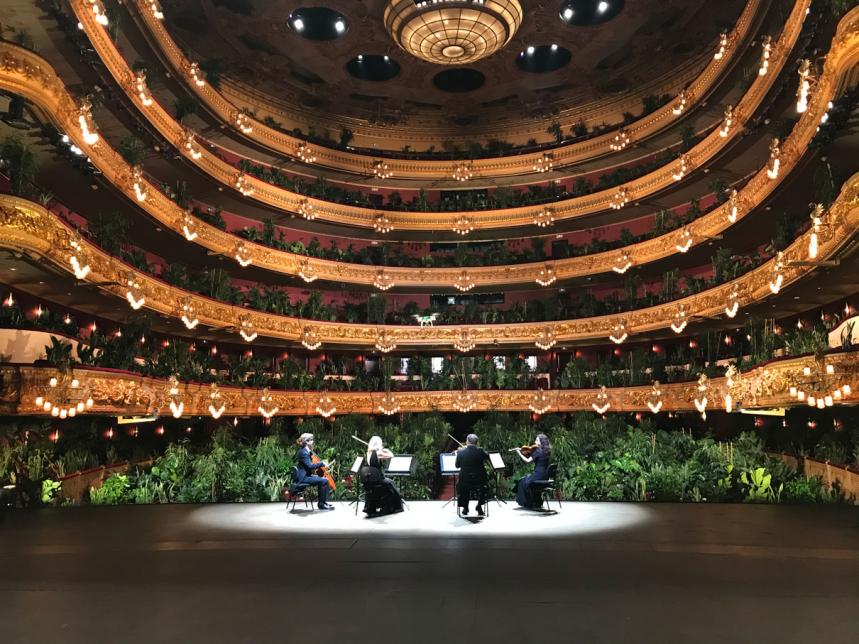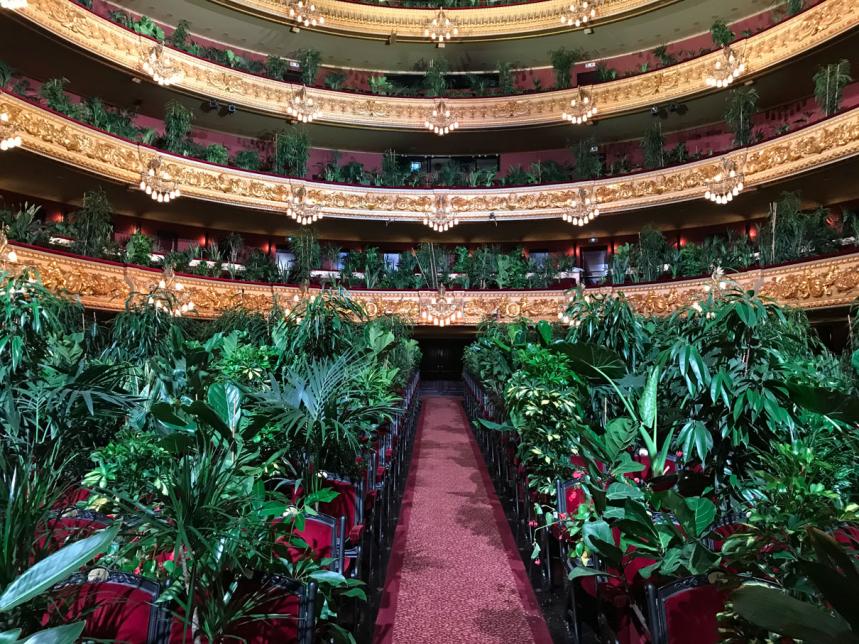
Spain's three-month-long lockdown order imposed to curb the spread of the COVID-19 pandemic was finally lifted on June 22, 2020. To celebrate the joyous occasion, the Gran Teatre del Liceu in Barcelona, Spain — one of Europe's oldest and most famous opera houses— staged its first live performance since mid-March. While every seat was occupied, there was not a human to be found. Instead, the sold-out audience comprised 2,292 potted plants carefully selected from local nurseries.
Featuring the UceLi Quartet, the performance, made available to human listeners via live-stream, was a prelude to the opera house's upcoming 2020-2021 season. In a nod to its leafy audience, the string quartet played a moving performance of Giacomo Puccini's "Crisantem" or "Chrysanthemums." Inspired by the beautiful yellow flowers, it is among a handful of instrumental works — and one of only four compositions for string quartet — penned by the famous Italian opera composer. Written in a single night, the musical arrangement pays tribute to King Amadeo of Spain — a close friend of Puccini's — who died in 1890.

Unfortunately for the musicians, the audience was unable to give the mesmerizing eight-minute-long performance the standing ovation it deserved. However, its resounding "applause" — the sound of leaves and branches blowing — could be heard across the opera house.
Eugenio Ampudia, who came up with the brilliant idea of the unusual audience, said he was inspired by nature during the pandemic lockdown. The Spanish artist says, "I heard many more birds singing. And the plants in my garden and outside growing faster. And, without a doubt, I thought that maybe I could now relate in a much intimate way with people and nature."
Following the concert, the "guests" were gifted to 2,292 healthcare workers at the Hospital Clínic of Barcelona. The opera house officials said they wanted to show their appreciation for the brave men and women who have served "on the toughest front in a battle unprecedented for our generations."
Resources: NPR.org, theGuardian.com.